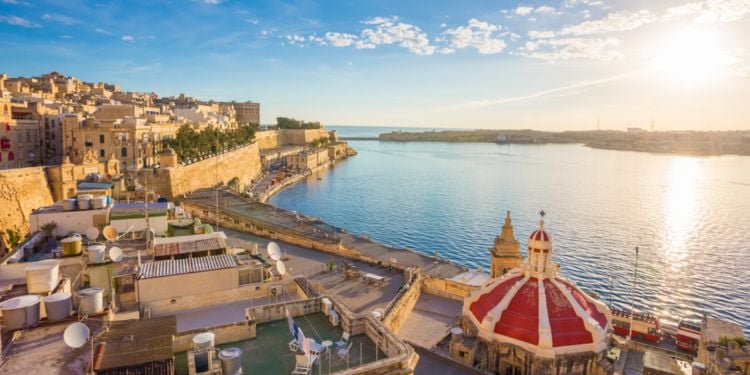
When you move to a new country, it can be easier to get connected and meet new people in an urban environment. If you're moving to Malta, Valletta might seem like the ideal place for you. Living in Valletta is certainly enjoyable as it's easy to hang out with friends or family, grab a bite, have a drink, or simply relax. In short, Valletta is a lively place to be for you to enjoy your expat experience in Malta.
Besides its historical and magnificent architecture, the Maltese capital city is a dynamic and vibrant place thanks to many festivals, cultural activities, and parades, as well as concerts, exhibitions, carnivals, religious processions, and more that are held there all year round.
Features of Valletta: A good place to find accommodation
Stretching over a mere 80 hectares of land, Valletta has been Malta's capital city since the 16th century.
Built from 1566 onwards, Valletta is one of the smallest capitals in Europe. Its architecture has a distinctly baroque character, and walking through its streets feels like walking through an open-air museum! The layout of these straight streets resembles a grid; it is said that this was intended to allow the breeze to circulate and cool the city during the summer.
Valletta is the commercial and administrative center of Malta. Some government departments are housed in historic buildings. Indeed, even though the city is small, it is full of important historical sites. Many buildings date back to the 16th century, and since 1980 Valletta has been a UNESCO World Heritage Site! In fact, it is one of the cities with the most historical sites in the world.
Valletta is a dynamic city, not only for its diverse inhabitants but also for the multitude of tourists who visit Valletta annually.
The city boasts many activities and facilities, including restaurants and shopping venues, as well as businesses and organizations. Valletta is a charming destination with a good variety of amenities for new residents.
Valletta is hectic during the day but strangely quiet at night. With its artistic buildings and historical monuments on every corner, you feel as if you are moving into the past. It is also very pleasant to walk around and enjoy the unique living environment.
Valletta is listed as a UNESCO World Heritage Site and was selected as one of the European Capitals of Culture in 2018. The history of the city is intriguing in its variety of rulers and inhabitants, where stories of both war and cultural accomplishments abound.
Contemporary Valletta also boasts chic coffee shops, wine bars, and several museums featuring everything from Neolithic carvings to modern art.
Theatre and art are prominent in the capital city, with shows throughout the year attracting internationally acclaimed performers and artists. You will never run out of events to attend in Valletta.
With all those features, Valletta is a good place to find accommodation.
Neighborhoods of Valletta
Valletta can be an ideal place to live, work, learn, and settle, as it provides a range of accommodation options. According to real estate professionals, living in Valletta's city center can be quite different from being on its adjacent roads.
Each part of the city, whether Upper or Lower Valletta, has its own characteristics. Keep in mind the small scale of the city, however, and don't worry that you'll end up far from a desirable neighborhood since everything is easily accessible on foot.
Living in Valletta
Valletta is a central city, you can take the bus to get to any place on the island, but you should not be impatient, because the service is sometimes irregular. The traffic is one of the reasons for this irregularity: if it is fluid in Valletta, it is not the case in its neighbors Sliema, Paceville and St Julian's. A vibrant city during the day, it is very quiet at night. Those who like the nightlife will go out to St Julian's, Sliema, and Paceville, the party district.
Installed in 2007, a traffic control scheme checks traffic with automated cameras by identifying the number plates of vehicles entering and leaving the pay zone. If you have a car and wish to park it, it will be very difficult to do so inside the city. You would better park your car in one of the parking available outside the city, such as in Floriana. If you want to live in Valletta, opt for using public transport. Bus terminals are located outside the city. From there, you can literally go everywhere in Malta. Electric taxis can be used to get around the city. Alternatively, take one Malta Public Transport minibusses: route 130 goes to the Waterfront and route 133 all around the city. Valletta is small, so you can also go around it on foot easily.
The Waterfront is nowadays a leisure and recreation area hosting cultural events such as the famous Jazz Festival in July. Sitting on a café terrace, you can enjoy a peaceful view of the cruise ships calling in.
How to find accommodation in Valletta
Valletta is not the easiest city to find accommodation in Malta. Stretching over less than one square kilometer, its offer regarding accommodation is quite limited. Being the capital city of Malta, it contains a great part of the Maltese institutions and services. Some buildings are also dedicated to tourism: restaurants, shops, hotels, etc. In Valletta, a lot of buildings are thus not dedicated to accommodation.
There are not really new constructions in Valletta since the city is UNESCO World Heritage Site. Buildings are protected. Valletta wants to protect its image, which is understandable given its beauty and charm. This characteristic does not allow companies to build new and modern buildings in Valletta. You will mostly find townhouses and old palaces. Most buildings are old and tend to come with issues, such as poor-quality isolation. However, some flats have been refurbished. They are new, modern and comfortable from the inside. Renting such a flat is a good way to get the best of both worlds: living in a beautiful traditional building while enjoying the modern comfort inside.
If possible, visit the city before finding accommodation. Real estate is booming in Malta, it is possible to find a flat or a house by searching on the internet, but as the market is changing very fast, it is better to search while being in the city. You will have more choices to find something that really fits your desires and needs, and you will be able to see the accommodation, its condition and its exact location.
For your accommodation search in Valletta, it might be more productive to utilize the services of real estate professionals. The capital city's rental market is a bit more restricted than in other areas, so a real estate agent can help you certainly find what best suits your needs and budget. Plus, offers are quite scarce online. Here are the main real estate agencies in Malta: Quicklets, RE/MAX, Alliance Real Estate, Simon Mamo Real Estate, Dhalia Real Estate and Benestates.
Be aware that an estate agent charges a commission (one month's rent shared by the owner and the tenant). An agency will do the search, which will save you time (you can search on your own at the same time), make the formalities easier, and allow you to find accommodation as soon as you arrive. Property rentals in Malta are very tight, the notice period is very short and sometimes non-existent. Offers appear and disappear very quickly. Be aware that in some estate agencies you will see advertisements for accommodation that has been rented for some time. This practice is intended to attract you and then offer you what is vacant (and generally less attractive).
Another way to find accommodation in Valletta is to check the online listings. The most popular and used marketplace used in Valletta, and Malta in general, is Maltapark. Go to the website and check its accommodation listing. Social media is also very useful for finding accommodation in Valletta. Facebook is the most used social media in Malta. Maltese people and expats use it for a lot of things, including to find accommodation. Go to Facebook and look for groups specializing in accommodation and renting in Malta. You can also go to the Facebook marketplace, use the filters and choose “Valletta”.
Finding accommodation online is a good way to skip real estate agents and avoid paying extra fees. As is the case throughout Malta, online listings for rental accommodations are rarely up-to-date. While an online search can give you a general sense of the types of accommodations that could be available, contacting a real estate agency directly will allow you to see what's currently available.
Good to know:
In Malta, English and Maltese are spoken, so if you are looking for accommodation on the internet, remember to search in English. Type "long-term rental Valletta" in your browser or on Facebook.
Note that, like elsewhere in the country, you are likely to find both furnished and unfurnished accommodation. It all depends on your preferences.
Rent prices in Valletta
In general, housing prices in Valletta have increased dramatically in recent years as interest in Malta has increased for both tourists and expats. City centre flats are “universally” more expensive than areas outside the main city. So, just remember that moving to Valletta comes with a higher price tag than you might find elsewhere in Malta.
Many Maltese and expatriates want to live in Valletta, so rents are not cheap. Expect a minimum of €850 for a studio. The rent for a two-bedroom apartment is between €1,000 and over €3,000, especially if you choose a refurbished one. Townhouses are rare. Don't expect less than €1,000 to rent one of them.
Nonetheless, life in Valletta can be worth the extra cost. To live in a UNESCO World Heritage Site can be a true treat and a unique experience.
Lease arrangements in Valletta
A long-term rental is for a minimum of six months, and the lease should normally be for one year, but landlords are often flexible. To rent accommodation in Valletta, you will usually be asked for the following:
- one month's deposit (refundable);
- one month's rent in advance;
- an estimate of charges which will be adjusted every three months;
- a valid identity document.
If you are a national of an EU country, you do not need a visa to live in Valletta, but you must have a residence permit (eResidence card) to stay for more than three months (see our article "Residence and work permit in Malta"). If you have a passport from another country, you will need a visa. For this, contact the Maltese embassy in your country of residence or the nearest consular representation.
Advice for when viewing accommodation in Valletta
As most of the flats and apartments in Valletta are old, you need to be careful when you view one. Here are some points you need to watch:
- Reversible air conditioning: it is a must-have in Malta. Without it, you will feel too hot in the summer. Without a heating system (including reversible air conditioning), you will feel cold during the winter. Furthermore, the AC helps you to dry your accommodation, thus avoiding dampness and mold settling in.
- Dampness and mold issues: it is a common issue in accommodations in Valletta and Malta in general. Malta's climate is indeed really humid. While visiting the flat or house, look for signs of water damage on walls, such as peeling paint, water stains, or even mold. Also, have a look under the sinks, baths and showers.
- Low water pressure, especially if you are renting a flat located on the upper floors.
- Rust is another water damage. The humid Maltese climate makes low-quality metal objects rust quickly. Also, don't forget that Valletta is surrounded by the sea!
- Mosquito nets: during summer, mosquitoes are numerous in Valletta.
- Water heaters: many flats in Valletta have small water heaters. This can be a problem if the accommodation is shared.
- TV and internet connections in Malta: they are often on the roof. In some cases, the installers will require your landlord's permission to access the roof and drill holes.
Useful links:
We do our best to provide accurate and up to date information. However, if you have noticed any inaccuracies in this article, please let us know in the comments section below.
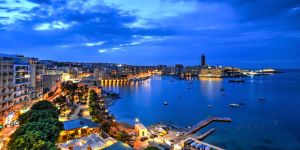
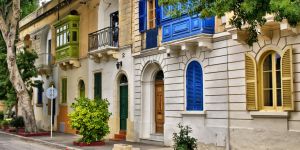

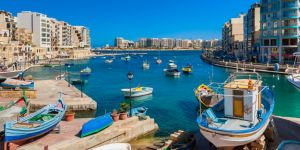
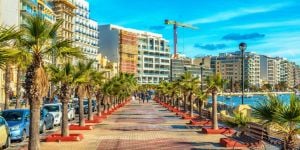

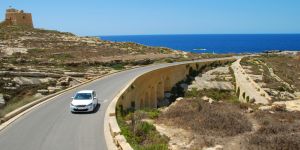
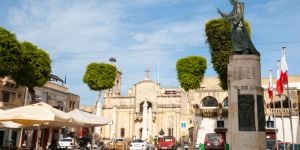




Comments